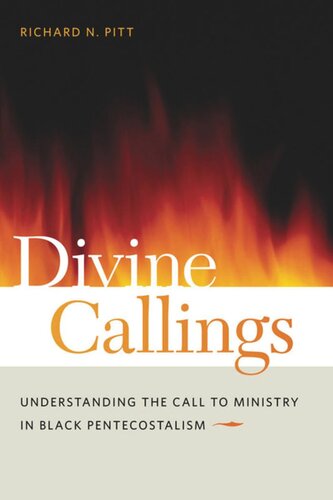

Most ebook files are in PDF format, so you can easily read them using various software such as Foxit Reader or directly on the Google Chrome browser.
Some ebook files are released by publishers in other formats such as .awz, .mobi, .epub, .fb2, etc. You may need to install specific software to read these formats on mobile/PC, such as Calibre.
Please read the tutorial at this link: https://ebookbell.com/faq
We offer FREE conversion to the popular formats you request; however, this may take some time. Therefore, right after payment, please email us, and we will try to provide the service as quickly as possible.
For some exceptional file formats or broken links (if any), please refrain from opening any disputes. Instead, email us first, and we will try to assist within a maximum of 6 hours.
EbookBell Team

4.8
24 reviewsOne of the unique aspects of the religious profession is the high percentage of those who claim to be “called by God” to do their work. This call is particularly important within African American Christian traditions. Divine Callings offers a rare sociological examination of this markedly understudied phenomenon within black ministry.
Richard N. Pitt draws on over 100 in-depth interviews with Black Pentecostal ministers in the Church of God in Christ—both those ordained and licensed and those aspiring—to examine how these men and women experience and pursue “the call.” Viewing divine calling as much as a social process as it is a spiritual one, Pitt delves into the personal stories of these individuals to explore their work as active agents in the process of fulfilling their calling.
In some cases, those called cannot find pastoral work due to gender discrimination, lack of clergy positions, and educational deficiencies. Pitt looks specifically at how those who have not obtained clergy positions understand their call, exploring the influences of psychological experience, the congregational acceptance of their call, and their response to the training process. He emphasizes how those called reconceptualize clericalism in terms of who can be called, how that call has to be certified, and what those called are meant to do, offering insight into how social actors adjust to structural constraints.